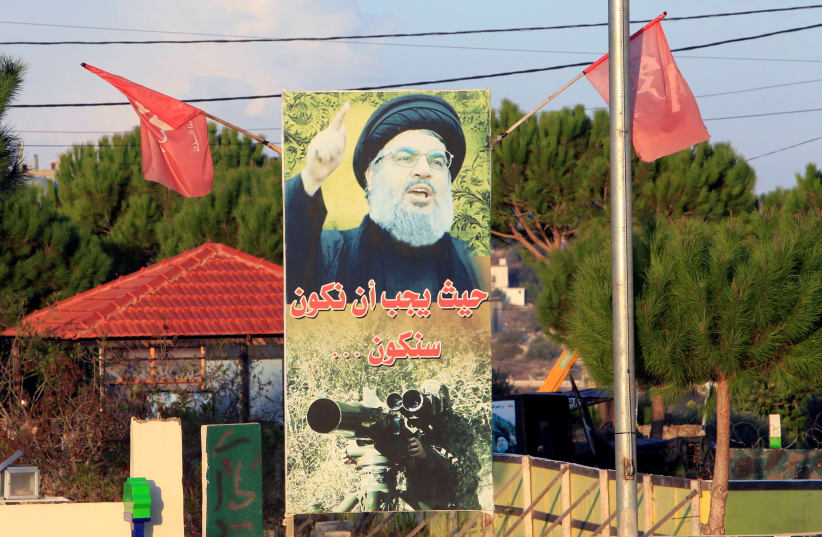Iran’s investment in its nuclear enterprise is a strategic threat to Israel, which is constantly acting in various ways to sabotage it and delay Tehran’s quest for a bomb.
At the end of 2020, Iran found itself at a nadir, the result of a hostile US administration, heavy sanctions, floods, earthquakes and, of course, the coronavirus pandemic. Indeed, experts believe the sharp drop in Iran’s GDP is now as severe as it was during the era of the Iran-Iraq War of the 1980s.
However, as an ancient and proud nation, Iran has not allowed a very bad year to affect its long-term goals to develop a nuclear bomb and strengthen its dominance throughout the region.
Regarding development of a bomb, it is assumed that if Iran were to make a decision today to start building a nuclear weapon, it would need about two years to complete the task.
Regarding the regional aspect, Iran wants to spread its hegemony across what is often referred to in the IDF as the “Shi’ite Crescent,” which spans from Iran to Iraq, Syria, Lebanon and Yemen, and nurture its relations with the Sunni Hamas terrorist group in the Gaza Strip.
The mechanism of this entrenchment has seen Iran establish cultural and religious ties as it sends money and munitions and supports local regimes.
At the beginning of 2020, the Islamic Republic lost a dominant figure who orchestrated its effort to broaden its influence, Quds Force commander Qasem Soleimani.
He spoke both Farsi and Arabic and used to travel across the region and coordinate between different units, militias and regimes.Under his watchful eye, the Shi’ite Crescent’s struggle was more effective, and more attacks were mounted against Iran’s enemies.
While Soleimani’s assassination by the US last January was a loss, despite his absence, Iran has used the global pandemic to further deepen its ties and offer its assistance to its proxies under the guise of humanitarian aid.
Two main countries that Iran used this year as bases for attacks against Israel were Iraq and Yemen. It shipped long-range drones and other weapons to both, understanding that if an attack against Israel was carried out from either of them, Israel would not automatically retaliate on Iranian soil.
While that development is concerning, Israel’s eyes are fixed first and foremost on Lebanon, where Hezbollah – the prime Iranian proxy – continues to grow in strength.
From Lebanon, Iran tries to carry out attacks against Israel in the Golan Heights. Examples of this were seen last August and November when the IDF found explosives placed near the border with Syria by the Quds Force’s Unit 840, an elite Iranian group that usually operates outside Iran against Western targets.
LEBANON, HOWEVER, is considered the most volatile front that Israel confronts.
The “war between the wars” has become a permanent situation of low-intensity hostilities, and Israel and Hezbollah are both learning how to maneuver within its tacit ground rules.
Currently for Hezbollah, there is an “open account” with Israel, which killed one of its operatives in Syria in August 2019. Hezbollah leader Hassan Nasrallah set the equation then: The organization will avenge the death, even if it takes time. Since then, there were several attempts to do that, but the organization has so far failed.
Throughout the year, Hezbollah continued to rearm and received more advanced munitions from Iran, including precision-guided weapons.
However, according to sources in the IDF, despite this threat, the IDF has developed more effective tools to counter Hezbollah. The group remains deterred, and it is not interested in embarking on a broad conflict with Israel, the sources said.
Lebanon is mired in a severe economic, political and social crisis, and Hezbollah realizes that dragging it into a war could lead to its complete collapse.
On the other hand, Hezbollah is determined to achieve its goal and settle the score. This could be realized through a limited border confrontation that might escalate into a day or a few days of more intensive combat.
